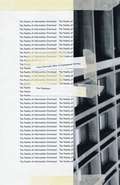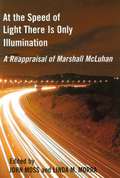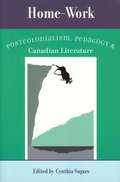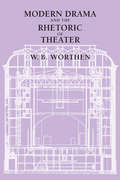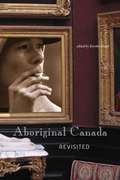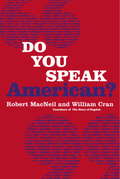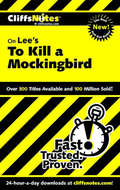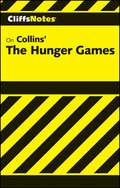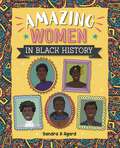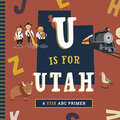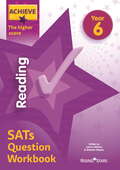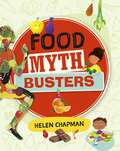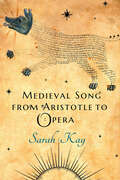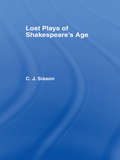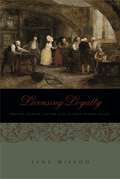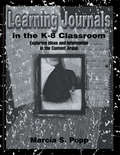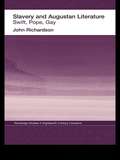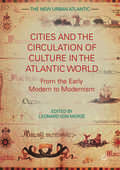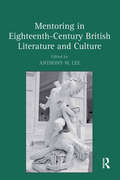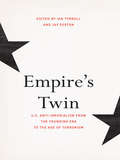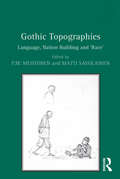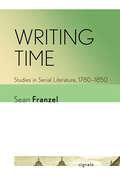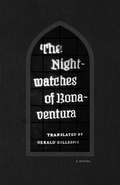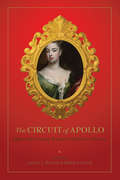- Table View
- List View
The Poetics of Information Overload
by Paul StephensInformation overload is a subject of vital, ubiquitous concern in our time. The Poetics of Information Overload reveals a fascinating genealogy of information saturation through the literary lens of American modernism. Although technology has typically been viewed as hostile or foreign to poetry, Paul Stephens outlines a countertradition within twentieth- and twenty-first-century literature in which avant-garde poets are centrally involved with technologies of communication, data storage, and bureaucratic control. Beginning with Gertrude Stein and Bob Brown, Stephens explores how writers have been preoccupied with the effects of new media since the advent of modernism. He continues with the postwar writing of Charles Olson, John Cage, Bern Porter, Hannah Weiner, Bernadette Mayer, Lyn Hejinian, and Bruce Andrews, and concludes with a discussion of conceptual writing produced in the past decade.By reading these works in the context of information systems, Stephens shows how the poetry of the past century has had, as a primary focus, the role of data in human life.
At the Speed of Light There is Only Illumination: A Reappraisal of Marshall McLuhan (Reappraisals: Canadian Writers)
by John Moss Linda M. MorraAt the Speed of Light There is Only Illumination collects a dozen re-evaluative essays on Marshall McLuhan and his critical and theoretical legacy; from intellectual adventurer creating a complex architecture of ideas to cultural icon standing in line in Woody Allen’s Annie Hall. Given McLuhan’s prominent status in many academic disciplines, the contributors reflect a multi-disciplinary background. John Moss and Linda Morra chose the essays from a gathering of McLuhan’s academic devotees. The contribution – from “McLuhan as Medium” and “McLuhan in Space” to “What McLuhan Got Wrong” and “Trouble in the Global Village” – to provide a kaleidoscope of new views. As Moss writes of the collected essays: “Some are big and some are small, some exegetic and some confessional, some stand as major statements and others are sidelong glances; some resonate with the concerns of public discourse and others are private or privileged or impious and provocative. Each consists of many parts, each a design on its own. They speak to each other…they may have come together as one version of what happened.”
Home-Work: Postcolonialism, Pedagogy, and Canadian Literature (Reappraisals: Canadian Writers)
by Cynthia SugarsCanadian literature, and specifically the teaching of Canadian literature, has emerged from a colonial duty to a nationalist enterprise and into the current territory of postcolonialism. From practical discussions related to specific texts, to more theoretical discussions about pedagogical practice regarding issues of nationalism and identity, Home-Work constitutes a major investigation and reassessment of the influence of postcolonial theory on Canadian literary pedagogy from some of the top scholars in the field.
Modern Drama and the Rhetoric of theater
by W. B. WorthenThe history of drama is typically viewed as a series of inert "styles. " Tracing British and American stage drama from the 1880s onward, W. B. Worthen instead sees drama as the interplay of text, stage production, and audience. How are audiences manipulated? What makes drama meaningful? Worthen identifies three rhetorical strategies that distinguish an O'Neill play from a Yeats, or these two from a Brecht. Where realistic theater relies on the "natural" qualities of the stage scene, poetic theater uses the poet's word, the text, to control performance. Modern political theater, by contrast, openly places the audience at the center of its rhetorical designs, and the drama of the postwar period is shown to develop a range of post-Brechtian practices that make the audience the subject of the play. Worthen's book deserves the attention of any literary critic or serious theatergoer interested in the relationship between modern drama and the spectator.
Aboriginal Canada Revisited: Politics And Cultural Expression In The 21st Century (International Canadian Studies Series)
by Kerstin KnopfExploring a variety of topics—including health, politics, education, art, literature, media, and film—Aboriginal Canada Revisited draws a portrait of the current political and cultural position of Canada’s Aboriginal peoples. While lauding improvements made in the past decades, the contributors draw attention to the systemic problems that continue to marginalize Aboriginal people within Canadian society.From the Introduction: “[This collection helps] to highlight areas where the colonial legacy still takes its toll, to acknowledge the manifold ways of Aboriginal cultural expression, and to demonstrate where Aboriginal and non-Aboriginal people are starting to find common ground.”Contributors include Aboriginal and non-Aboriginal scholars from Europe and Canada, including Marlene Atleo, University of Manitoba; Mansell Griffin, Nisga’a Village of Gitwinksihlkw, British Columbia; Robert Harding, University College of the Fraser Valley; Tricia Logan, University of Manitoba; Steffi Retzlaff, McMaster University; Siobhán Smith, University of British Columbia; Barbara Walberg, Confederation College.
Do You Speak American?
by Robert Macneil William CranAs America unceasingly reinvents itself, it must continually create language to express that reinvention--or so argue journalists MacNeil (former co-anchor of MacNeil/Lehrer NewsHour) and Cran. Here, they address such topical issues as whether or not American grammatical standards are declining, if mass media is homogenizing speech, and if Spanish is threatening to displace English in the United States. While written for a general audience. Annotation ©2006 Book News, Inc. , Portland, OR (booknews. com)
CliffsNotes on Lee's To Kill a Mockingbird
by Tamara CastlemanThe original CliffsNotes study guides offer expert commentary on major themes, plots, characters, literary devices, and historical background. The latest generation of titles in this series also feature glossaries and visual elements that complement the classic, familiar format.In CliffsNotes on To Kill a Mockingbird, you explore Harper Lee's literary masterpiece -- a novel that deals with Civil Rights and racial bigotry in the segregated southern United States of the 1930s. Told through the eyes of the memorable Scout Finch, the novel tells the story of her father, Atticus, as he hopelessly strives to prove the innocence of a black man accused of raping and beating a white woman.Chapter summaries and commentaries take you through Scout's coming of age journey. Critical essays give you insight into racial relations in the South during the 1930s, as well as a comparison between the novel and its landmark film version. Other features that help you study includeCharacter analyses of the main charactersA character map that graphically illustrates the relationships among the charactersA section on the life and background of Harper LeeA review section that tests your knowledgeA Resource Center full of books, articles, films, and Internet sitesClassic literature or modern modern-day treasure -- you'll understand it all with expert information and insight from CliffsNotes study guides.
CliffsNotes on Collins' The Hunger Games
by CliffsnotesCliffsNotes on Collins' The Hunger Games analyzes the wildly popular first novel in The Hunger Games trilogy, in which the Capitol forces each of Panem's 12 districts to choose two teenagers to participate in the Hunger Games, a gruesome, televised fight to the death. In the 12th district, Katniss Everdeen steps in for her little sister and enters the Games, where she is torn between her feelings for her hunting partner, Gale Hawthorne, and the district's other tribute, Peeta Mellark, even as she fights to stay alive. The Hunger Games will change Katniss' life forever, but her acts of humanity and defiance might just change the Games, too.
Reading Planet: Astro - Amazing Women in Black History - Mars/Stars
by Sandra A. AgardBlack History is not just history - it is the history of people left out of the history books. But this book is different! In this book, we're going to meet 15 amazing Black women. Some were pioneers of the past - and some are doing incredible things today! Learn about Mary Prince, the first Black woman to publish her life story; Sister Rosetta Tharpe, the Godmother of rock and roll; Wangari Maathai, the environmental warrior; and Dina Asher- Smith, the fastest British woman in history! Why not learn about Amazing Men in Black History in the other book in this series too! Amazing Women in Black History is part of the Astro range from Rising Stars Reading Planet. Astro books are ideal for struggling and reluctant readers aged 7-11. Each book is dual-banded so that children can improve their fluency whilst enjoying exciting fiction and non-fiction relevant to their age. Reading Planet books have been carefully levelled to support children in becoming fluent and confident readers. Each book features useful notes and questions to support reading at home and develop comprehension skills. Interest age: 8-9 Reading age: 7-8 years
U Is for Utah
by Christopher RobbinsAn ABC primer of the unique places and animals specific to Utah.
Achieve Reading SATs Question Workbook The Higher Score Year 6 (Achieve Key Stage 2 SATs Revision)
by Laura Collinson Shareen WilkinsonAchieve. Fun and focused SATs revision.Achieve the Higher Score in Reading, with the only fully updated revision series. Written in the style of the most recent Year 6 National Tests, this indispensable workbook will help more able children gain familiarity with the style of the more demanding areas of the 2019 national tests and covers everything that could be tested while ensuring children have some fun while they learn.Our unique approach has been helping children and schools perform above national average for over 15 years. This full colour write-in workbook:- Focuses practice on the areas of the curriculum needed to reach the higher score- Increases exam confidence with questions and terminology that mirror the SATs- Clearly shows children what examiners are looking for when marking extended questions- Draws on expert analysis to ensure our content is just right Perfect for use alongside Achieve Reading SATs Revision The Higher Score Year 6 and Achieve Reading SATs Practice Papers Year 6
Reading Planet: Astro - Food Myth Busters - Earth/orange Band
by Helen ChapmanWe all have to eat, right? We do it every day! But do you ever really think about what you're eating? In this fascinating book, you'll learn all about Go, Slow and Whoa foods - foods that are healthy to eat all the time and ones that we should only eat sometimes. We'll also be busting the myths about food that many people think are true but are not! Things like: Eating bread crusts will make your hair grow curly ... Read on to find out the truth about this myth and many more!Food Myth Busters is part of the Astro range from Rising Stars Reading Planet. Astro books are ideal for struggling and reluctant readers aged 7-11. Each book is dual-banded so that children can improve their fluency whilst enjoying exciting fiction and non-fiction relevant to their age. Astro books for Earth/White band are also highly-decodable so ideal for extra phonics practice. Reading Planet books have been carefully levelled to support children in becoming fluent and confident readers. Each book features useful notes and questions to support reading at home and develop comprehension skills.Interest age: 8-9 Reading age: 6-7 years
Medieval Song from Aristotle to Opera
by Sarah KayFocusing on songs by the troubadours and trouvères from the twelfth to the fourteenth centuries, Medieval Song from Aristotle to Opera contends that song is not best analyzed as "words plus music" but rather as a distinctive way of sounding words. Rather than situating them in their immediate period, Sarah Kay fruitfully listens for and traces crosscurrents between medieval French and Occitan songs and both earlier poetry and much later opera. Reflecting on a song's songlike quality—as, for example, the sound of light in the dawn sky, as breathed by beasts, as sirenlike in its perils—Kay reimagines the diversity of songs from this period, which include inset lyrics in medieval French narratives and the works of Guillaume de Machaut, as works that are as much desired and imagined as they are actually sung and heard. Kay understands song in terms of breath, the constellations, the animal soul, and life itself. Her method also draws inspiration from opera, especially those that inventively recreate medieval song, arguing for a perspective on the manuscripts that transmit medieval song as instances of multimedia, quasi-operatic performances. Medieval Song from Aristotle to Opera features a companion website (cornellpress.manifoldapp.org/projects/medieval-song) hosting twenty-four audio or video recordings, realized by professional musicians specializing in early music, of pieces discussed in the book, together with performance scores, performance reflections, and translations of all recorded texts. These audiovisual materials represent an extension in practice of the research aims of the book—to better understand the sung dimension of medieval song.
Lost Plays of Shakespeare S a Cb: Lost Plays Shakespeare
by Charles Jasper SissonFirst published in 1971
Licensing Loyalty: Printers, Patrons, and the State in Early Modern France (Penn State Series in the History of the Book)
by Jane McLeodIn Licensing Loyalty, historian Jane McLeod explores the evolution of the idea that the royal government of eighteenth-century France had much to fear from the rise of print culture. She argues that early modern French printers helped foster this view as they struggled to negotiate a place in the expanding bureaucratic apparatus of the French state. Printers in the provinces and in Paris relentlessly lobbied the government, hoping to convince authorities that printing done by their commercial rivals posed a serious threat to both monarchy and morality. By examining the French state’s policy of licensing printers and the mutually influential relationships between officials and printers, McLeod sheds light on our understanding of the limits of French absolutism and the uses of print culture in the political life of provincial France.
Learning Journals in the K-8 Classroom: Exploring Ideas and information in the Content Areas
by Marcia S. PoppLearning Journals in the K-8 Classroom is the first comprehensive presentation of how to use academic journals effectively for elementary-level instruction. The text outlines the theoretical foundations for using learning journals and provides step-by-step suggestions for implementing them in every content area and at all levels of elementary instruction. Learning journals provide resources and support for reading aloud, independent reading, mini-lessons, cooperative study, individual research, workshops, and the portfolio system. The type of interactive writing students do in learning journals helps them explore complex ideas in the content areas, using their own strengths of analysis and response; the journals then become resources for future learning, group discussions, individual conferences, learning assessment, reports, and progress. Four introductory chapters show teachers how to create their own journals, introduce journals to students, integrate them with cooperative study, and use them for assessment. Additional chapters focus on the individual curriculum areas of literature, writing, mathematics, science, and social studies. The text includes sample entries from student journals at all grade levels and in every content area, and appendices of annotated resources to support journaling and interviews with teachers who use journals in their classrooms.
Restoration Plays and Players
by David RobertsIntroducing readers to the key texts, theatrical practice and context of late seventeenth-century drama, David Roberts combines literary and theatrical approaches to show how Restoration plays were written, performed, received and printed. Structured according to the 'life cycle' of the dramatic text, this book reproduces extracts from twenty-four of the most influential Restoration plays to provide readers with a comprehensive and colourful introduction to the period's drama. Roberts encourages readers to look beyond a limited canon of established plays and practice, and to see how Restoration Drama has been revived and adapted on the modern stage. Restoration Plays and Players is of great interest to undergraduate and non-specialist readers of seventeenth-century drama, Restoration literature and theatre studies.
Slavery and Augustan Literature: Swift, Pope and Gay (Routledge Studies in Eighteenth-Century Literature)
by Dr J RichardsonSlavery and Augustan Literature investigates slavery in the work of Jonathan Swift, Alexander Pope and John Gay. These three writers were connected with a Tory ministry, which attempted to increase substantially the English share of the international slave trade. They all wrote in support of the treaty that was meant to effect that increase. The book begins with contemporary ideas about slavery, with the Tory ministry years and with texts written during those years. These texts tend to obscure the importance of the slave trade to Tory planning. In its second half, the book analyses the attitudes towards slavery in Pope's Horatian poems, An Essay on Man, Polly, A Modest Proposal and Gulliver's Travels. John Richardson shows how, despite differences, Swift, Pope and Gay adopt a mixed position of admiration for freedom alongside implicit support for slavery.
Cities and the Circulation of Culture in the Atlantic World: From the Early Modern to Modernism (The New Urban Atlantic)
by Leonard MorzéThis book provides a much-needed comparative approach to the history of cities by investigating the dissemination of cultural forms between cities of the Atlantic world. The contributors attend to the various forms and norms of cultural representation in Atlantic history, examining a wealth of diverse topics such as the Portuguese Atlantic; the Spanish Empire; Guy Fawkes and the conspiratorial rhetoric of slaves; Albert-Charles Wulffleff and the Parc-Musée of Dakar; and the writings of Jane Austen, Alexis de Tocqueville, Benjamin Franklin, and others. By interpreting Atlantic urban history through sustained attention to customs and representational forms, an international group of nine contributors demonstrate the power of culture in the making of Atlantic urban experience, even as they acknowledge the harsh realities of economic history.
Mentoring in Eighteenth-Century British Literature and Culture
by Anthony W. LeeIn the first collection devoted to mentoring relationships in British literature and culture, the editor and contributors offer a fresh lens through which to observe familiar and lesser known authors and texts. Employing a variety of critical and methodological approaches, which reflect the diversity of the mentoring experiences under consideration, the collection highlights in particular the importance of mentoring in expanding print culture. Topics include John Wilmot the Earl of Rochester's relationships to a range of role models, John Dryden's mentoring of women writers, Alexander Pope's problematic attempts at mentoring, the vexed nature of Jonathan Swift's cross-gender and cross-class mentoring relationships, Samuel Richardson's largely unsuccessful efforts to influence Urania Hill Johnson, and an examination of Elizabeth Carter and Samuel Johnson's as co-mentors of one another's work. Taken together, the essays further the case for mentoring as a globally operative critical concept, not only in the eighteenth century, but in other literary periods as well.
Empire’s Twin: U.S. Anti-imperialism from the Founding Era to the Age of Terrorism
by Jay Sexton Ian TyrrellAcross the course of American history, imperialism and anti-imperialism have been awkwardly paired as influences on the politics, culture, and diplomacy of the United States. The Declaration of Independence, after all, is an anti-imperial document, cataloguing the sins of the metropolitan government against the colonies. With the Revolution, and again in 1812, the nation stood against the most powerful empire in the world and declared itself independent. As noted by Ian Tyrrell and Jay Sexton, however, American "anti-imperialism was clearly selective, geographically, racially, and constitutionally." Empire's Twin broadens our conception of anti-imperialist actors, ideas, and actions; it charts this story across the range of American history, from the Revolution to our own era; and it opens up the transnational and global dimensions of American anti-imperialism. By tracking the diverse manifestations of American anti-imperialism, this book highlights the different ways in which historians can approach it in their research and teaching. The contributors cover a wide range of subjects, including the discourse of anti-imperialism in the Early Republic and Civil War, anti-imperialist actions in the U.S. during the Mexican Revolution, the anti-imperial dimensions of early U.S. encounters in the Middle East, and the transnational nature of anti-imperialist public sentiment during the Cold War and beyond. Contributors: Laura Belmonte, Oklahoma State University; Robert Buzzanco, University of Houston; Julian Go, Boston University; Alan Knight, University of Oxford; Ussama Makdisi, Rice University; Erez Manela, Harvard University; Peter Onuf, Robert H. Smith International Center for Jefferson Studies, Monticello, and University of Virginia; Jeffrey Ostler, University of Oregon; Patricia Schechter, Portland State University; Jay Sexton, University of Oxford; Ian Tyrrell, University of New South Wales
Gothic Topographies: Language, Nation Building and ‘Race’
by Matti SavolainenIn demonstrating the global reach of Gothic literatures, this collection takes up the influence of the Gothic mode in literatures that may be geographically remote from one another but still share related issues of minor languages, nation building, place and race. Suggesting that there is a parallel between certain motifs and themes found in the Gothic of the North (Scandinavia, Northern Europe and Canada) and South (Australia, South Africa and the US South), the essays explore the transgressions and confusion of borders and limits, whether they be linguistic, literary, generic, class-based, gendered or sexual. The volume includes essays on a wide diversity of authors and topics: Jan Potocki, Gustav Meyrink, William Godwin, Alan Hollinghurst, Marlene van Niekerk, John Richardson, antislavery discourse and the Gothic imagination, the Australian aboriginal Gothic, vampires of Post-Soviet Gothic society, Danish, Swedish and Finnish fiction and film, and the Canadian female Gothic and the death drive. What distinguishes this book from other collections on the Gothic is the coverage of themes and literatures that are either lacking in the mainstream research on the Gothic or are referred to only briefly in other book-length studies. Experts in the Gothic and those new to the field will appreciate the book's commitment to situating Gothic sensibilities in an international context.
Writing Time: Studies in Serial Literature, 1780–1850 (Signale: Modern German Letters, Cultures, and Thought)
by Sean FranzelWriting Time shows how serial literature based in journals and anthologies shaped the awareness of time at a transformative moment in the European literary and political landscapes. Sean Franzel explores how German-speaking authors and editors "write time" both by writing about time and by mapping time itself through specific literary formats.Through case studies of such writers as F. J. Bertuch, K. A. Böttinger, J. W. Goethe, Ludwig Börne, and Heinrich Heine, Franzel analyzes how serial writing predicated on open-ended continuation becomes a privileged mode of social commentary and literary entertainment and provides readers with an ongoing "history" of the present, or Zeitgeschichte. Drawing from media theory and periodical studies as well as from Reinhart Koselleck's work on processes of temporalization and "untimely" models of historical time, Writing Time presents "smaller" literary forms—the urban tableau, cultural reportage, and caricature—as new ways of imagining temporal unfolding, recentering periodicals and other serial forms at the heart of nineteenth-century print culture.
The Nightwatches of Bonaventura
by Bonaventura translated by Gerald GillespieFirst published in German in 1804, under the nom de plume "Bonaventura,” The Nightwatches of Bonaventura is a dark, twisted, and comic novel, one part Poe and one part Beckett. The narrator and antihero is not Bonaventura but a night watchman named Kreuzgang, a failed poet, actor, and puppeteer who claims to be the spawn of the devil himself. As a night watchman, Kreuzgang takes voyeuristic pleasure in spying on the follies of his fellow citizens, and every night he makes his rounds and stops to peer into a window or door, where he observes framed scenes of murder, despair, theft, romance, and other private activities. In his reactions, Kreuzgang is cynical and pessimistic, yet not without humor. For him, life is a grotesque, macabre, and base joke played by a mechanical and heartless force. Since its publication, fans have speculated on the novel’s authorship, and it is now believed to be by theater director August Klingemann, who first staged Goethe’s Faust. Organized into sixteen separate nightwatches, the sordid scenes glimpsed through parted curtains, framed by door chinks, and lit by candles and shadows anticipate the cinematic. A cross between the gothic and the romantic, The Nightwatches of Bonaventura is brilliant in its perverse intensity, presenting an inventory of human despair and disgust through the eyes of a bitter, sardonic watcher who draws laughter from tragedy. Translated by Gerald Gillespie, who supplies a fresh introduction, The Nightwatches of Bonaventura will be welcomed by a new generation of English-language fans eager to sample the night’s dark offerings.
The Circuit of Apollo: Eighteenth-Century Women's Tributes to Women (Early Modern Feminisms)
by Claudia Thomas Kairoff Nicolle Jordan Christine Gerrard Kathryn R. King Catherine Ingrassia Laura Tallon Natasha Duquette Susan S. Lanser Katharine Kittredge Shelley King Betty A. SchellenbergWritten by a combination of established scholars and new critics in the field, the essays collected in Circuit of Apollo attest to the vital practice of commemorating women’s artistic and personal relationships. In doing so, they illuminate the complexity of female friendships and honor as well as the robust creativity and intellectual work contributed by women to culture in the long eighteenth century. Women’s tributes to each other sometimes took the form of critical engagement or competition, but they always exposed the feminocentric networks of artistic, social, and material exchange women created and maintained both in and outside of London. This volume advocates for a new perspective for researching and teaching early modern women that is grounded in admiration.Distributed for the University of Delaware Press
